Our Verdict
An excellent remake, prequel, and game in its own right—Crisis Core has it all.
PC Gamer's got your back
In lesser hands, the tidal wave of nostalgia unleashed by Final Fantasy 7 prequel Crisis Core would result in nothing more than another weary case of Remembering Things: The Game.
Look, there's Midgar. Again. There's Shinra's HQ. Again. Remember Sephiroth? Good, because he's back and he's brought his friends Bootleg Sephiroth and Cloud v0.01 along with him this time.
But Crisis Core is not in lesser hands, and it isn't interested in superficially retreading old ground, either. This is the story of Zack Fair, first seen in a smattering of Final Fantasy 7 flashbacks, along with an RPG's worth of friends and foes either created especially for Crisis Core, given their first significant outing here, or seen in a whole new light. These new personalities bring fresh stories and perspectives to the game's popular setting, sometimes clarifying an old and muddily written plot thread, sometimes adding further intrigue to events that seemed clear-cut and fully explained the first time around.
Zack's an easy character to like. He begins Crisis Core with an excitable attitude, happily stomping through Final Fantasy 7's world in his company-issue boots, cleaning up "distortions" (corporate-speak for "anyone who opposes Shinra") on command and eager to meet the most heroic SOLDIER of them all, Sephiroth. This ignorant positivity subtly matures over the course of the game, his zest for life not diminished but reframed as personal defiance of his increasingly harsh reality. The re-recorded and vastly expanded voice acting (as well as the slightly tweaked English translation) that delivers this shift is convincingly emotive on every subject from serious lines about personal legacies to one-off jokes, with Final Fantasy 7 Remake's voice actors returning where appropriate.
Crisis Core's origin as a PSP game brings with it an unexpected benefit—brevity. The original didn't have the disc space or battery power to waste time doing anything other than getting straight to the point, and thanks to this the main story in Reunion keeps moving forwards at a brisk pace with plenty of automatic and manual save points along the way, and a good chunk of the optional side stories are contained within their own easily accessed menu, ready whenever I am.
Even though the 3D landscapes cover everything from steampunk slums filled with detailed junk to verdant villages where fruit lazily hangs from twisted boughs, only the general look and layouts are from the 15-year-old game Reunion is based on. Everything else is either brand new or sensibly pilfered, perhaps with some minor alterations, from the existing models found within Final Fantasy 7 Remake.
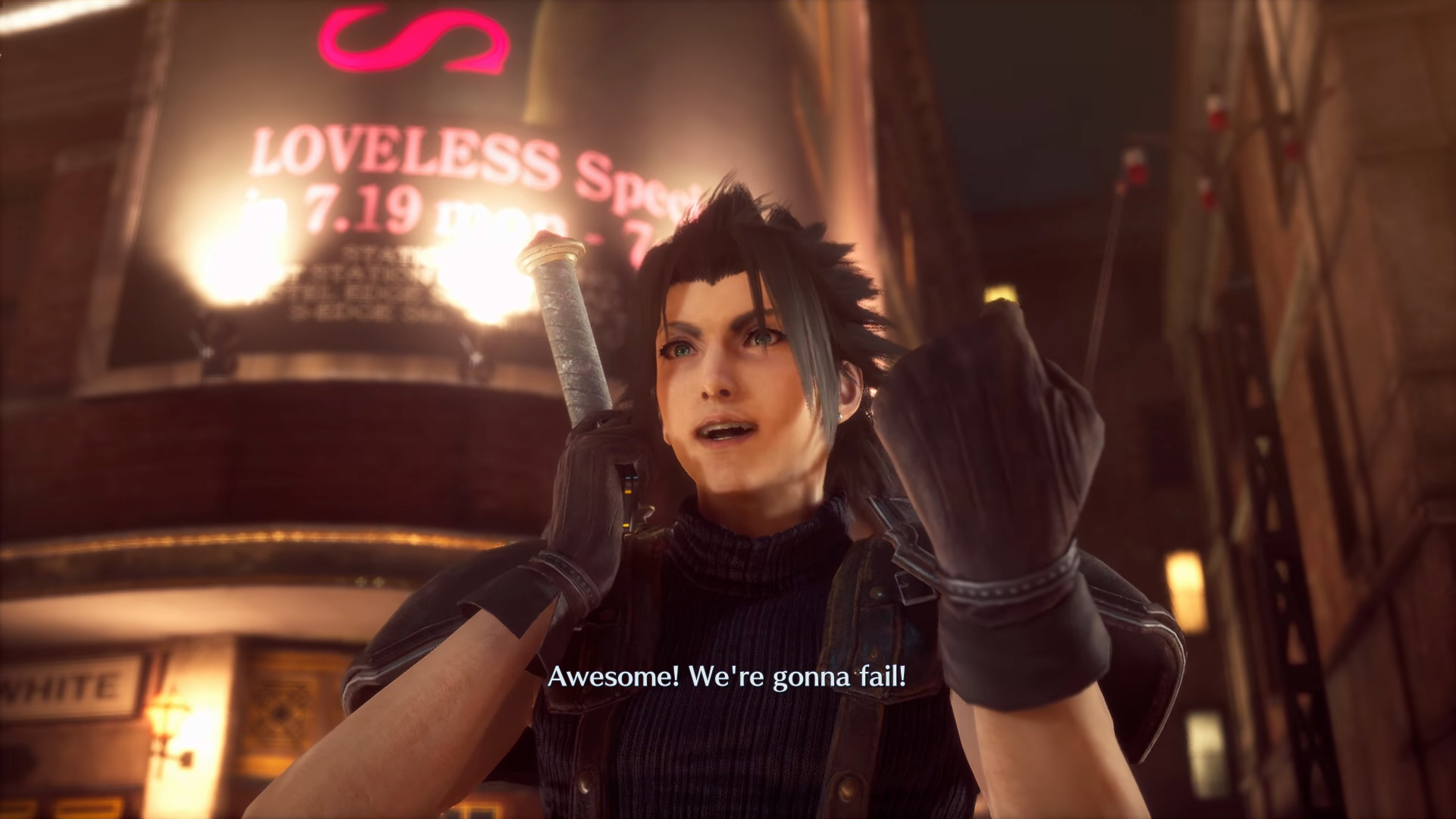
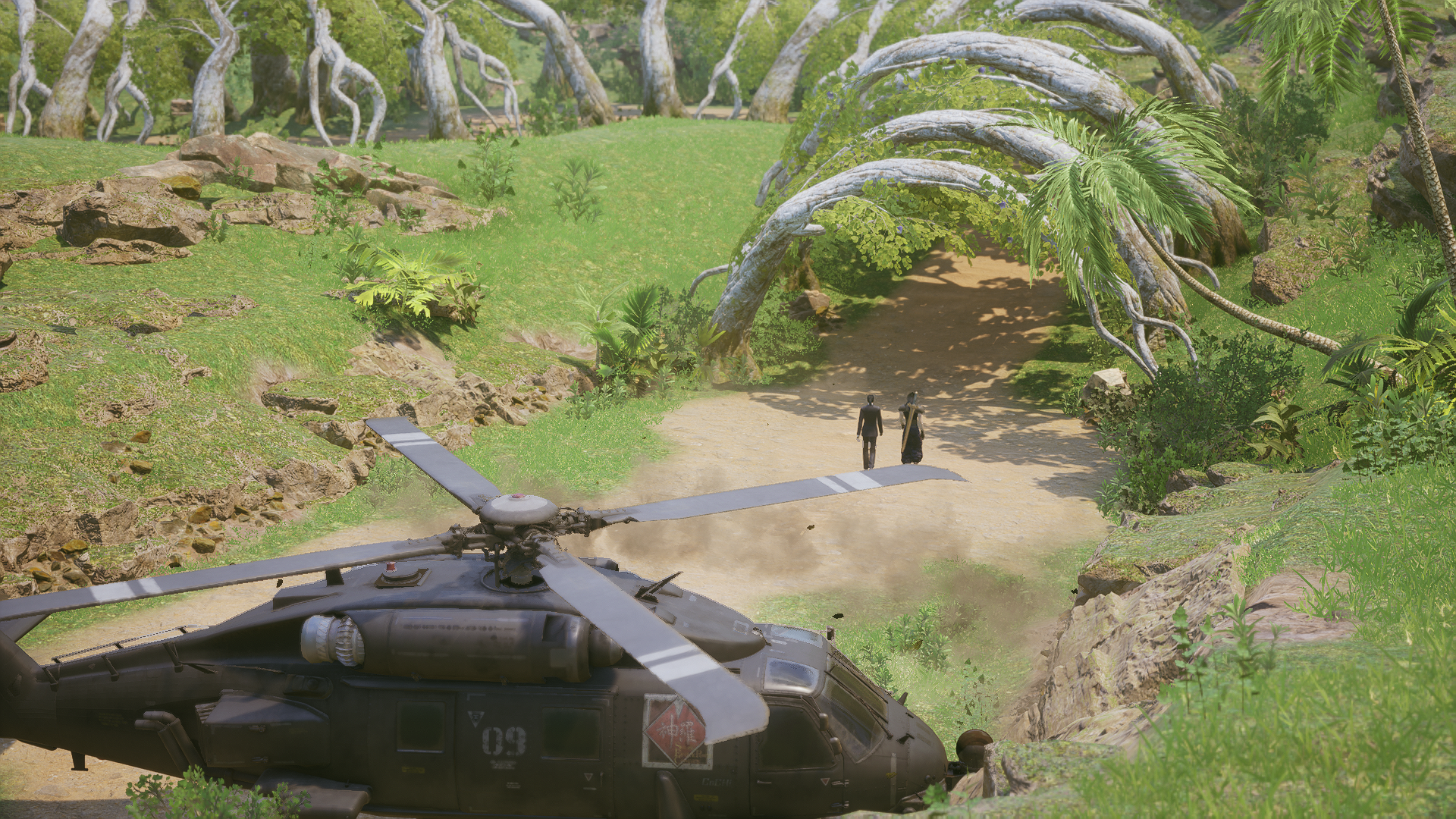
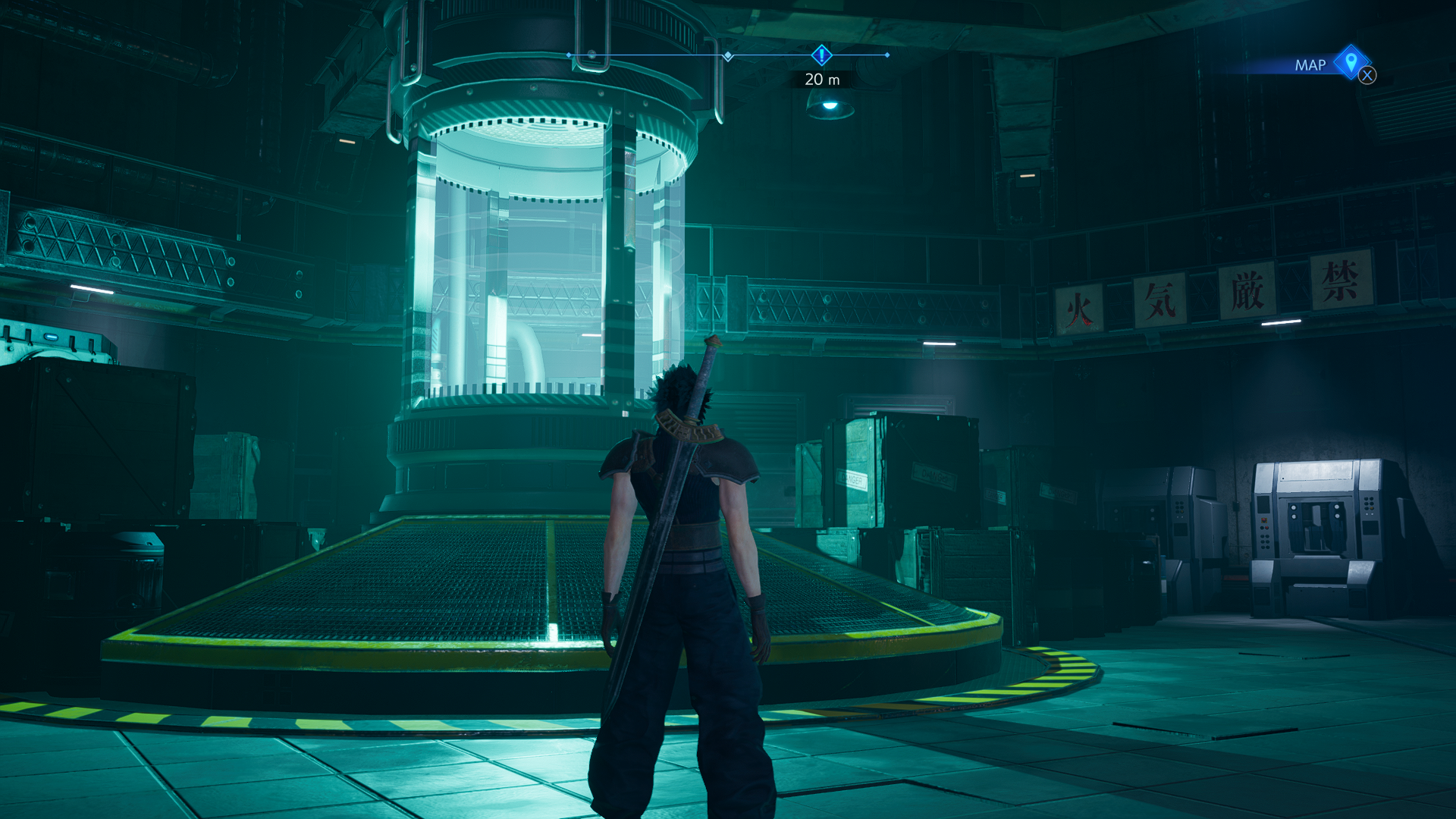
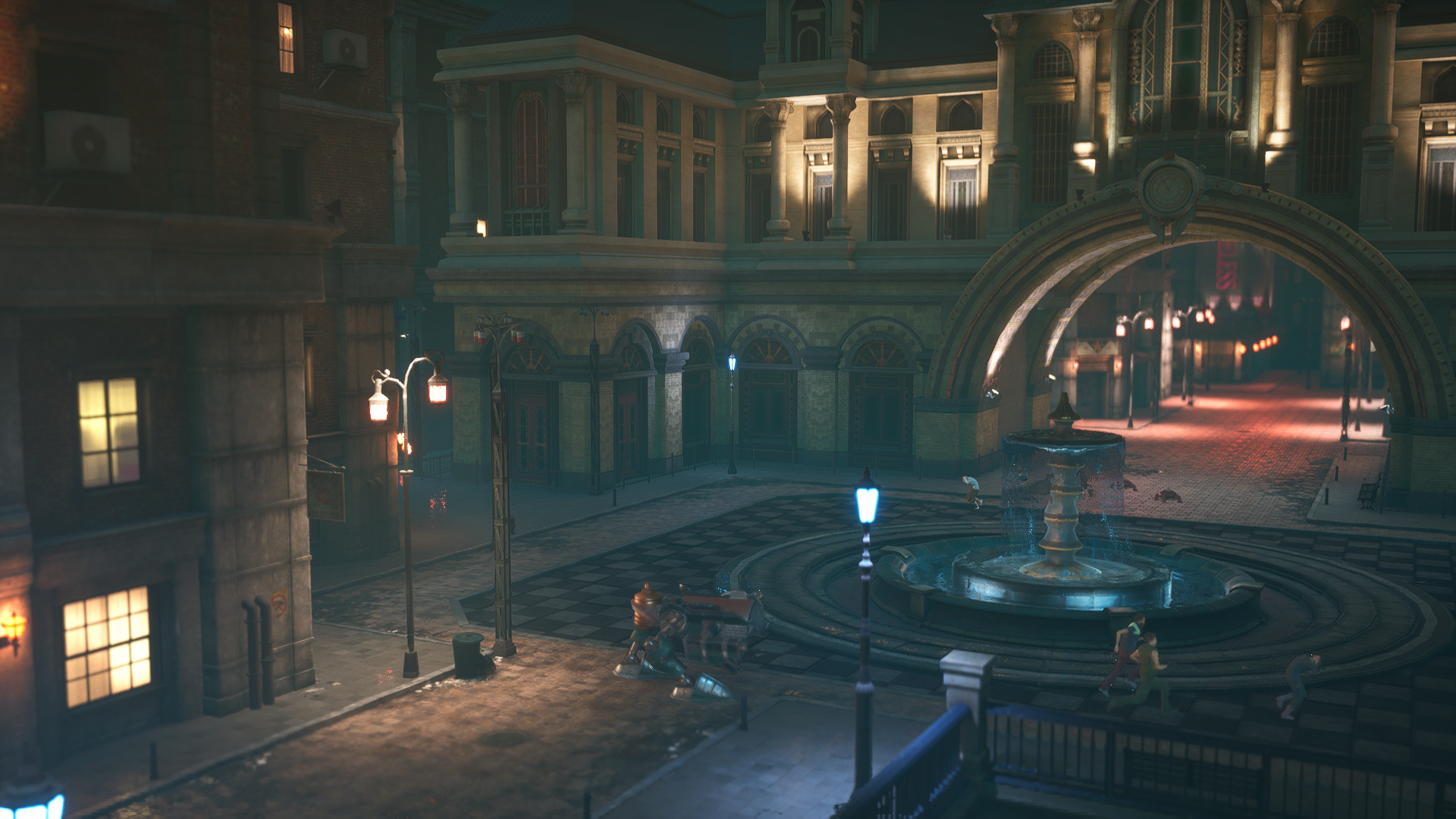
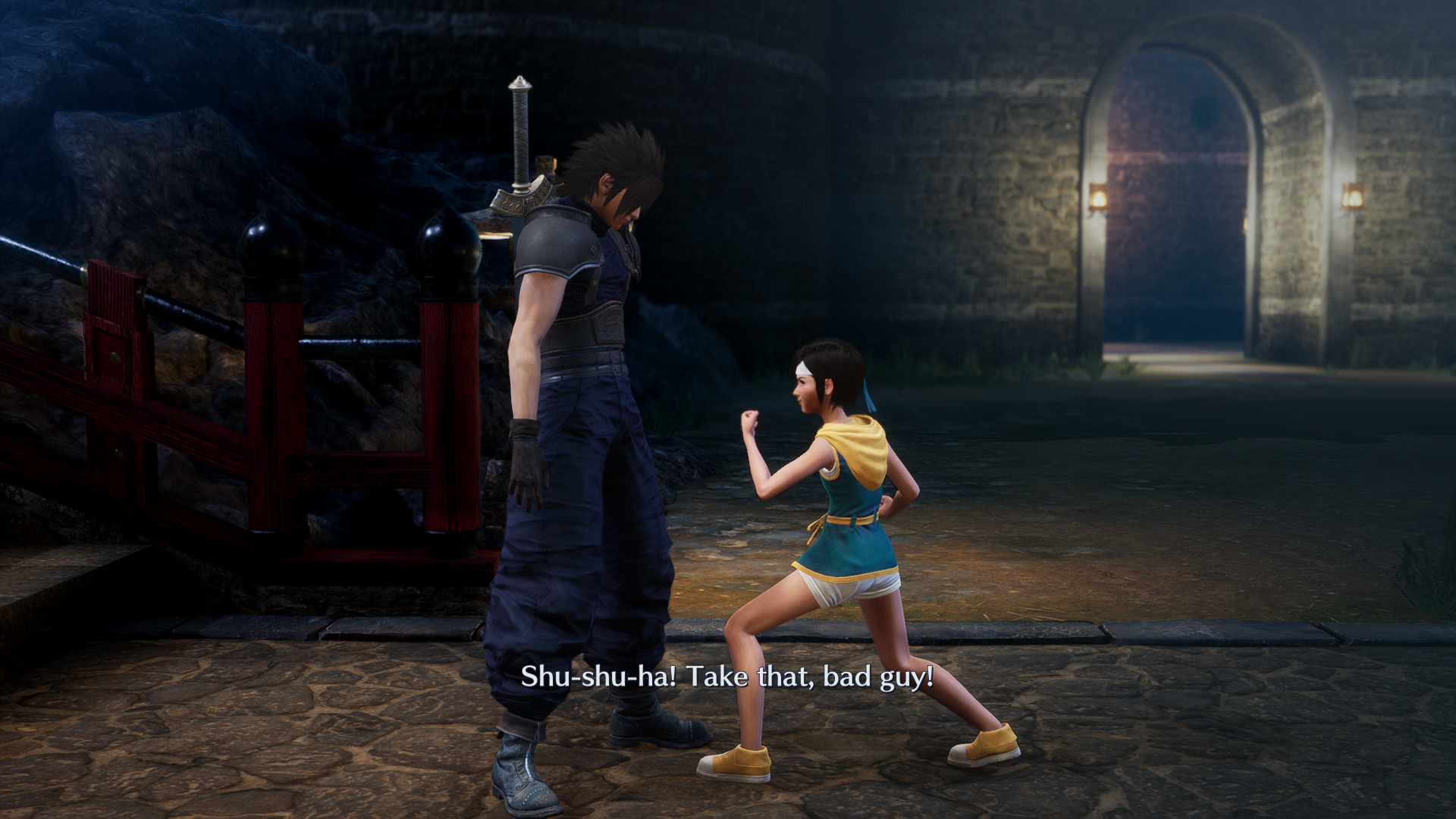
Crisis Core is not quite as polished as Remake, though. Some of the animation is a little too simplistic or repetitive when viewed in HD—a flapping puppetlike mouth as a no-name NPC speaks, Zack performing the exact same hand gesture yet again—and the conspicuously compact areas betray the game's portable roots. But as comparatively cost-conscious as the game briefly is in places, it's clear that Square's idea of what a "budget" remake should look like is very different to most, and on the whole Reunion looks as modern as any other top-tier RPG.
There are unfortunately some hard limits on how far PC gamers can push these graphics, as the settings available are on the basic side. There are some standard window/resolution/v-sync/FPS options to choose from, with straightforward low/medium/high for shadows, textures, and AA to go with them. But the camera and keybind settings are almost comically detailed, allowing users to adjust everything from basic controls to the camera's behaviour when it encounters an inclined surface. Overall performance is pleasantly uneventful, with no stuttering or ugly pop-in—Crisis Core simply works as it's meant to for as long as it's running.
Crisis Core's old combat system has been almost entirely rebuilt, and definitely for the better. Revamped core commands—attack, dodge, and guard—and an intelligent lock-on system give Zack the fluidity of an action hero, while a range of subtle details add layers of strategic nuance. Many RPG battle systems rely entirely on the power of maths to determine whether an attack hits or misses its target, whereas Crisis Core focuses on physical connection and positioning in the moment instead: blows only causing damage when sword arm or spell meets creepy Shinra-funded abomination. I'm the key to Zack's survival, rather than a stat sheet: my own ability to judge and react to an incoming attack is far more important than any boosted statistic or piece of equipment.
Crisis Core Reunion escapes Final Fantasy 7's long shadow with ease
It's a shift in focus that makes Zack's victories feel my own, every successful dodge down to personal skill and every quickly cleared battle concrete proof of my own abilities.
Even magic is more than just sparkly damage here. Icicles drop in from above and have a narrow area of effect, making them hard to use against a mobile target. Powerful fireballs are a multi-hit spread. Gravity orbs take an age to connect with an enemy, but can decimate their health bars if they do. Every spell has some unique quirk that needs to be considered, which stops spellcasting being a case of spamming the most numerically effective option over and over again.
Running in one corner of the screen while all this is going on is the DMW (Digital Mind Wave), Crisis Core's casino-style slot system. These unpredictable bonuses give battles a slightly chaotic air: Zack can briefly become a dragon-summoning spellcaster or an invincible warrior, encouraging me to switch up my battle tactics to make the best use of whatever is currently active. As these effects are always beneficial, the ever-shifting alterations to my tactics feel like a welcome chance to cause trouble in a different way for a short while, without ever keeping me from whatever personal plan of attack I had in mind before the reels stopped spinning.
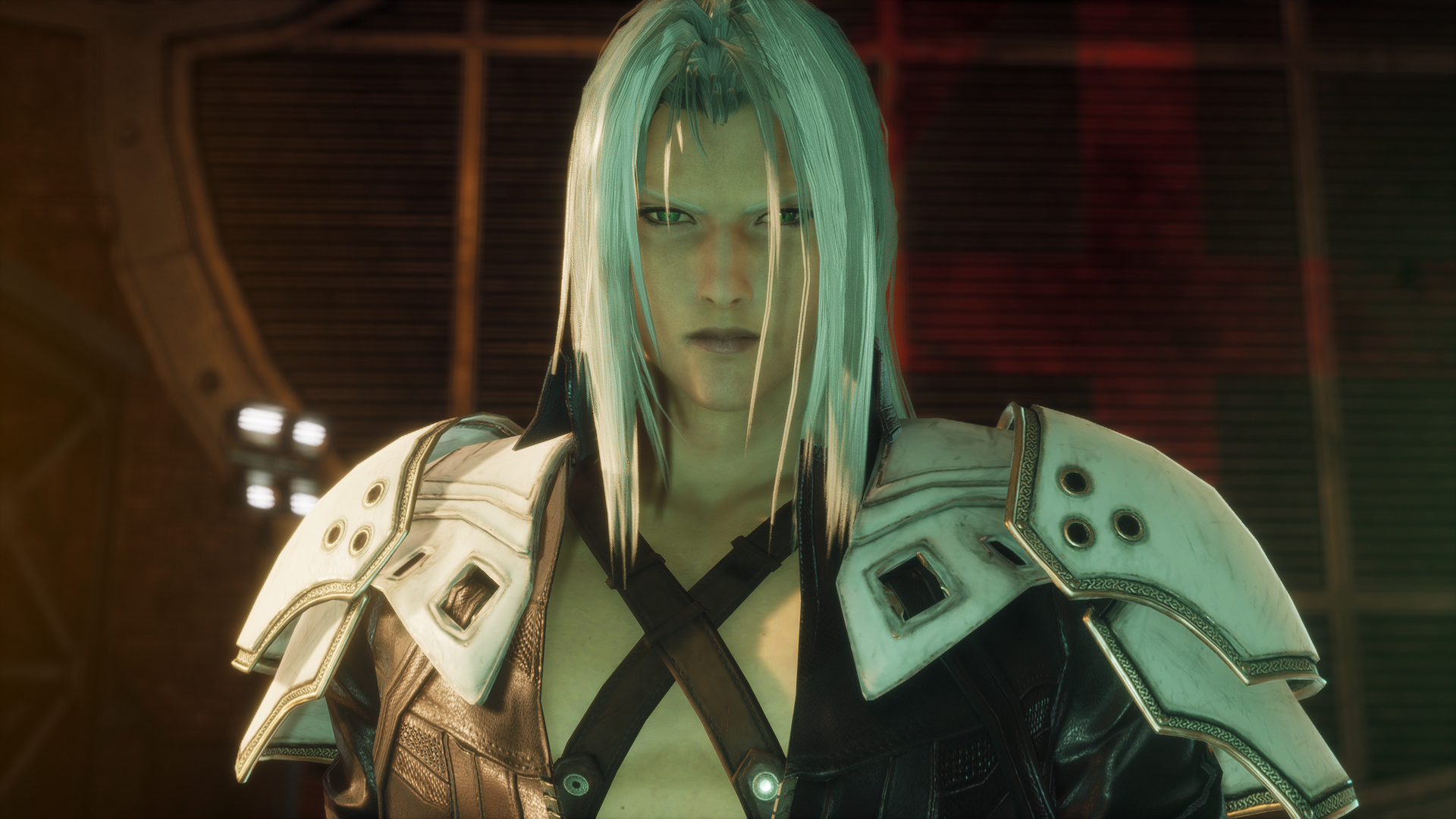
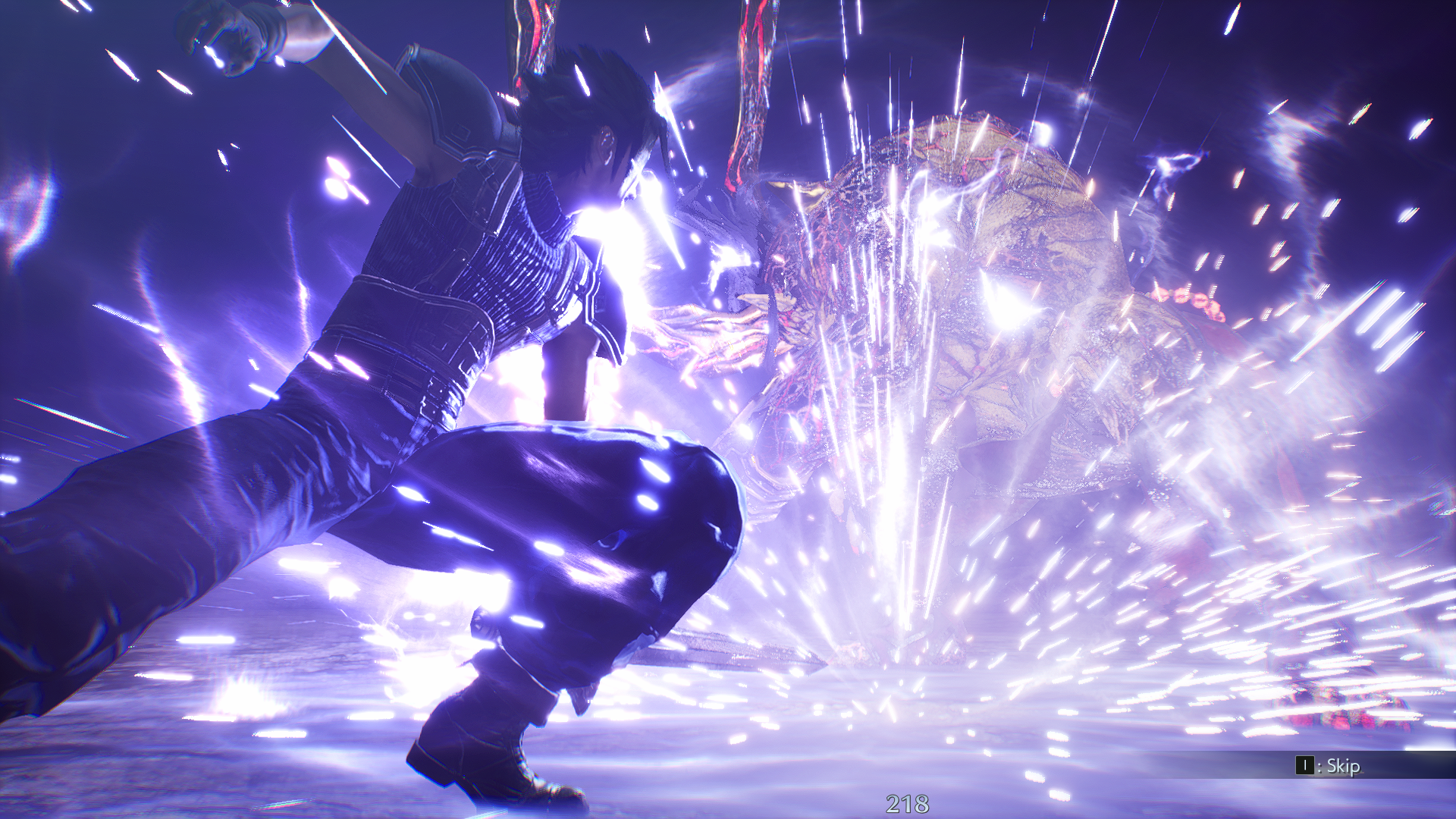
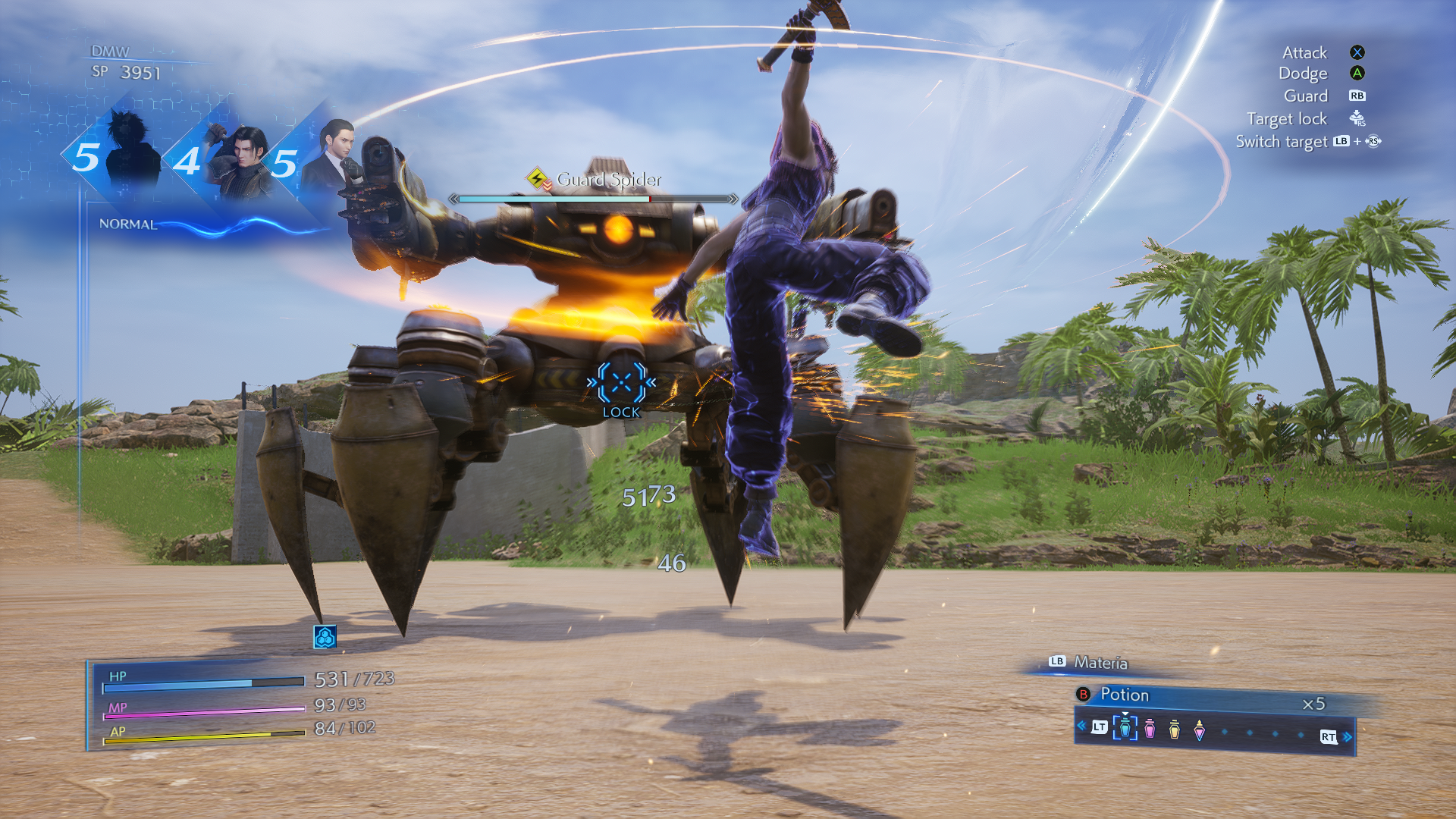
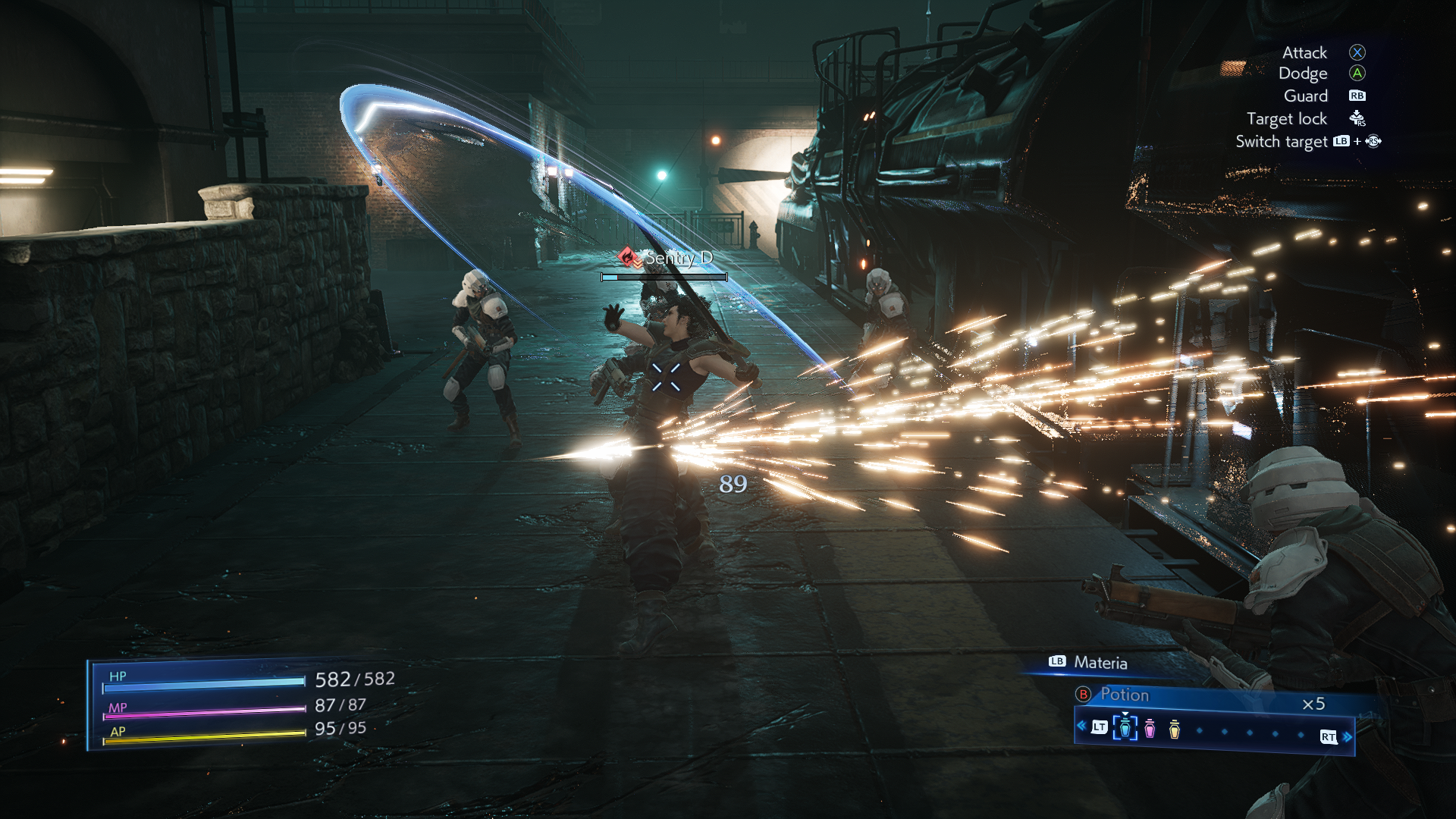
The DMW also directly ties into the story. Sometimes the reels are replaced by flashes of past events, or the action may pause entirely for a few (skippable) seconds, potentially revealing new insights. The distraction mimics Zack's own wandering thoughts, and I found the stark contrast between the effect-laden fights and precious memories unexpectedly emotional, as it gave our relentlessly upbeat hero unseen depths and tender moments he wouldn't otherwise have had.
Crisis Core Reunion is an engrossing action-RPG with no patience for fluff or filler, and a game that escapes Final Fantasy 7's long shadow with ease. As someone who can still remember playing through Crisis Core on PSP I found the vastly upgraded graphics and reworked battle system here well worth the replay, and Zack's resolute (and ultimately futile) positivity in a world designed to crush him under its heel still managed to tug at my heartstrings, even though I knew exactly how his story was going to play out before I'd even installed the game.
Between the Pixel Remasters, Tactics Ogre, and now this, it's clear Square-Enix's back catalogue is in safe hands.
An excellent remake, prequel, and game in its own right—Crisis Core has it all.

When baby Kerry was brought home from the hospital her hand was placed on the space bar of the family Atari 400, a small act of parental nerdery that has snowballed into a lifelong passion for gaming and the sort of freelance job her school careers advisor told her she couldn't do. She's now PC Gamer's word game expert, taking on the daily Wordle puzzle to give readers a hint each and every day. Her Wordle streak is truly mighty.
Somehow Kerry managed to get away with writing regular features on old Japanese PC games, telling today's PC gamers about some of the most fascinating and influential games of the '80s and '90s.

